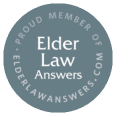- CALL FOR A FREE CONSULTATION
- (805) 915-4793
- (844) 215-9400
- Trust@CBM.Estate

A Trust is a fiduciary agreement by which a Grantor (sometimes called Trustor or Settlor) appoints a Trustee to manage and distribute the trust assets. Usually, the initial Trustee is the person who establishes the Trust.
Being appointed as a Successor Trustee of someone else’s Trust is a great honor, but it also comes with great responsibility.
You may become a Successor Trustee when the initial Trustee is unable or unwilling to serve as Trustee due to incapacity, illness, or death. A Successor Trustee is usually appointed in the Trust. As a Trustee, you have legal responsibilities to manage the Trust assets, make distributions according to the terms of the Trust, and comply with state laws.
After the Grantor dies, the Successor Trustee must settle the Trust Estate. The Trust Estate are the assets held in the name of the Trust.
The Successor Trustee’s responsibility is to continue managing the trust assets, settle all debts, pay and file taxes, transfer title to real property, prepare trust accountings if required, and distribute assets to the beneficiaries named in the Trust according to the terms of the Trust.
Trust administration varies from Trust to Trust.
However, there are general duties all Trustees must comply with, like providing legal written notice to all the trust beneficiaries and the Grantor’s heirs at law.
If you need assistance performing your duties as Successor Trustee, please do not hesitate to contact us. Unlike other law firms, we do not charge based on a percentage of the value of the Trust Estate but on the work we perform.
Find out about the most important tasks you need to do when you take over as successor trustee.

Receive a complimentary 1-hour consultation with one of our compassionate attorneys to discuss how we can help you.
Call Us TodayCBM Estate and Trust Law
Carmen B. Marquez, P.C.


Seminars are held in our Simi Valley Office on the last Saturday of every month.
At CBM we never charge potential clients for the first 60-minute initial consultation whether or not we are retained. However, we will require a nonrefundable deposit if the potential client requires a second consultation before we are hired. We will apply 50% of the nonrefundable deposit toward the price of the work to be performed on behalf of the client.
CBM also do not charge for follow-up phone calls, emails, and assistance to help our private clients properly fund their trust for up to three months after they execute their Trust. This includes working with our client’s financial advisors (as long as we have our client’s consent) to ensure the trust is properly funded.